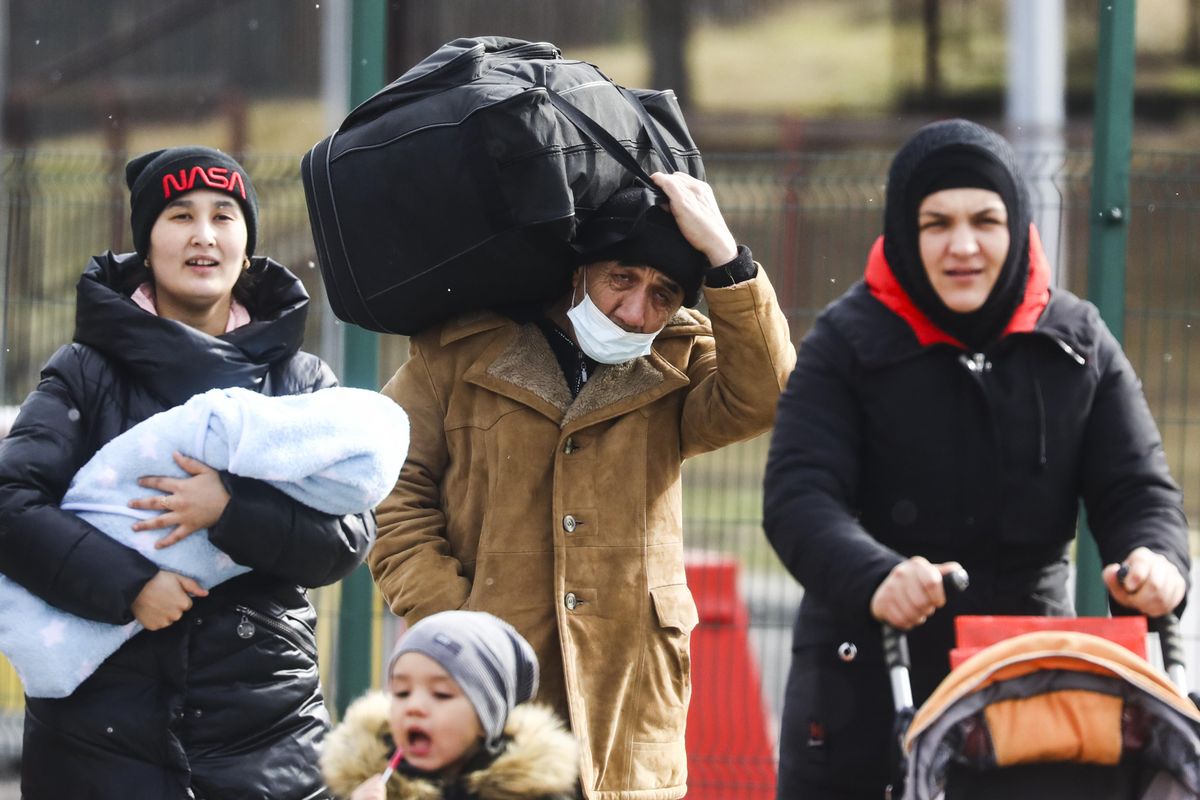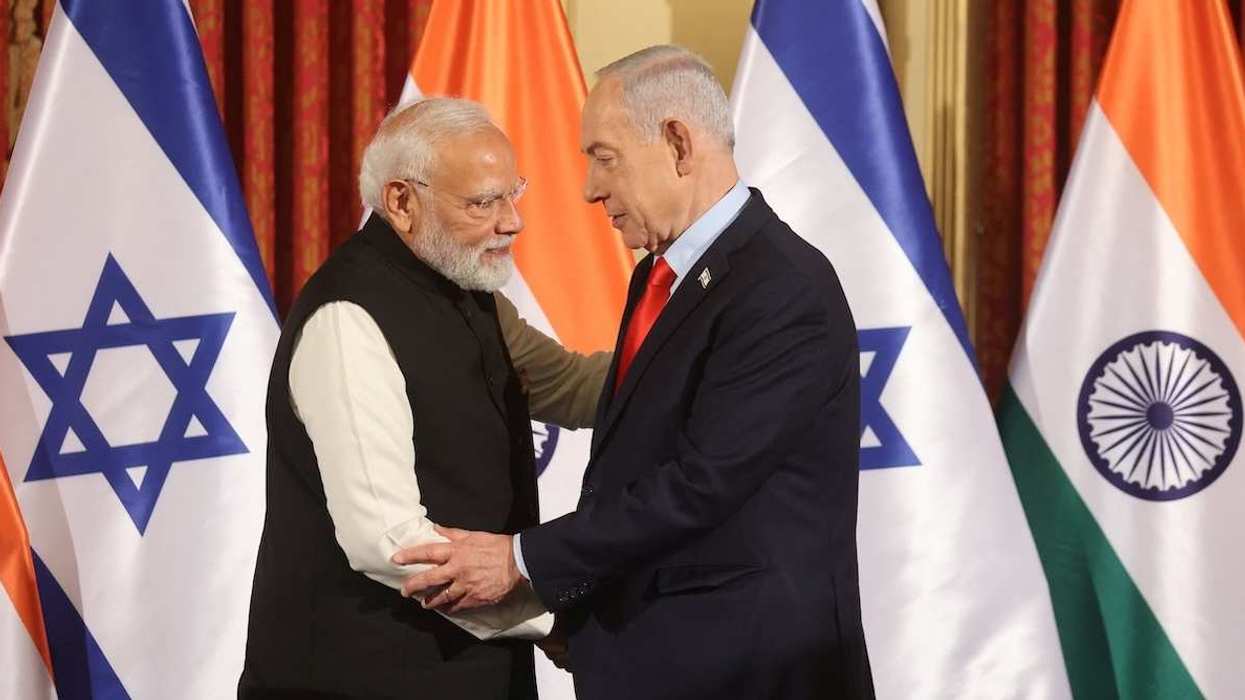War coverage often focuses on enigmatic leaders, such as Angela "wir schaffen das" Merkel, a rugged (shirtless) Vladimir Putin or this week’s internet sensation, Volodymyr Zelensky. Articles are dedicated to battlefield tactics, strategy, and even the length and shape of negotiation tables, but less is said of the millions of civilians caught in the crossfires.
In the past week, many have fled from Ukraine to neighboring countries. The media have focused on the European Union welcoming Ukrainians with red carpets, bucking the anti-immigrant tide that’s swept the continent in recent years. But it's worth digging deeper. What exactly has the EU committed to, and where might this all be heading?
Who’s going where? The UN says more than one million people have fled Ukraine since the Russian invasion on Feb. 24. More than half (548,000) have gone to Poland, where tens of thousands are languishing in processing centers on the border. Ukrainian nationals have also sought refuge in EU member states: Hungary (133,000), Slovakia (79,000), and Romania (51,000), as well as in Moldova (98,000), which is not part of the EU and is one of Europe’s poorest countries.
“We have seen tremendous solidarity and hospitality from countries neighboring Ukraine who are receiving refugees right now with open arms and open borders,” says Kathryn Mahoney, spokesperson for the UN High Commission for Refugees. But the number of people fleeing, and the required resources, are rising fast, she warns.
“We are now talking about Europe’s largest refugee crisis this century.”
The EU makes a move. In a significant development this week, the EU announced that it would enact a 20-year-old law for the first time since 2001 to allow Ukrainian refugees to bypass lengthy asylum processes.
The proposal, expected to be backed by the 27-member bloc Thursday, will allow Ukrainians to live and work in the EU for up to one year and entitle them to healthcare, housing, and other social benefits. The proposal states that if the war in Ukraine continues — or if Ukrainians are unable to return safely — their status in the EU can be extended for up to an additional two years.
For anyone who has been paying attention to the jingoist vibe in Europe since the Syrian refugee wave in 2015 — which culminated in Brexit — this policy appears to signal a big tonal shift. In 2015, Poland’s nationalist government refused to take in any Syrian asylum seekers.
But despite the sense of cohesion, enforcement of the plan will be a challenge. This is, in part, because the EU outline is ambiguous — perhaps deliberately so. Who will decide when Ukraine is “safe” enough for women and kids to return home? What constitutes the end of the war?
It is one thing to make these assurances at this early stage of the crisis. It is quite another to absorb millions of people in a matter of weeks or months. How will populist leaders in Hungary and Poland respond when constituents start complaining about Ukrainians taking their jobs? Where are the funds coming from to support the influx of refugees who will undoubtedly put a strain on absorption centers and resources?
Importantly, it is also unclear what mechanism will be put in place for burden sharing throughout the bloc. To date, EU member states have been at loggerheads about a distribution mechanism to manage refugee flows. From a legal perspective, countries of first entry are responsible for processing asylum applications. But Warsaw and Budapest are unlikely to accept this burden longer term without assurances that member states will share the load.
Mahoney, for one, is hopeful that cooperation and assistance will prevail long term. “We trust this show of solidarity will continue,” she says. But Mahoney also knows it will be an uphill battle, and to that end, she says, the UNHCR can help.
“[We stand] ready to support efforts by governments and other stakeholders to find solutions and provide humanitarian assistance wherever necessary and possible.”



















